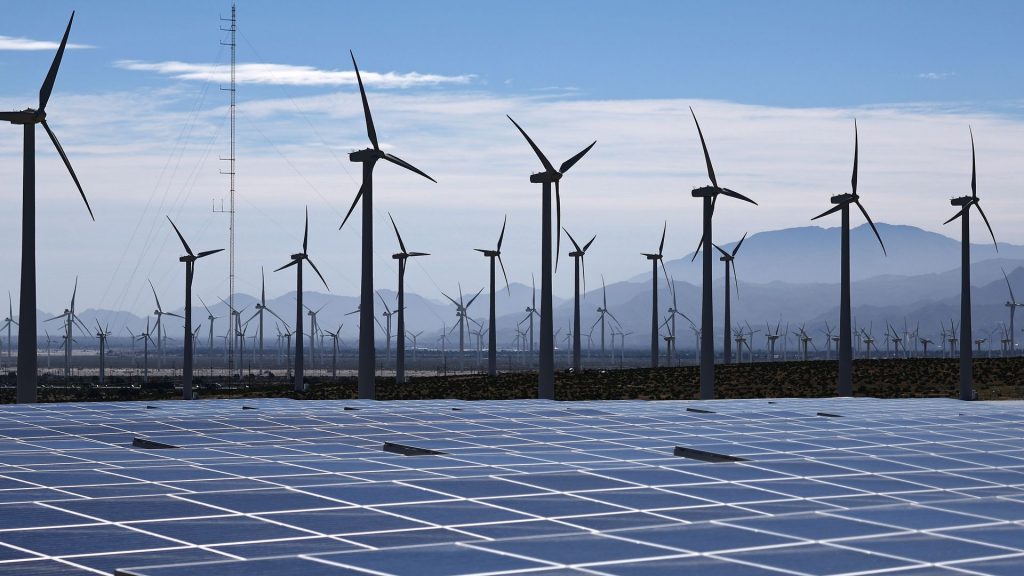Senate cuts wind, solar incentives, keeps tax credits for nuclear, geothermal energy

Congress is set to decide the future of tax credits for energy technologies, electric vehicles and domestic manufacturing. Late on Monday, June 16, the Senate Finance Committee unveiled its changes to the “One Big, Beautiful Bill,” striking a middle ground between maintaining energy tax credits and the steeper cuts passed by the U.S. House of Representatives.
Congress is pursuing changes to energy tax credits to help offset the cost of renewing significant tax cuts originally passed in 2017 — a key priority for President Donald Trump. In 2022, Congress passed the $370 billion Inflation Reduction Act, a signature policy of the Biden Administration, and introduced tax credits to incentivize renewable energy production, electric vehicle (EV) adoption, and domestic manufacturing of technologies that could reduce reliance on oil and gas.
The credits allow energy companies to receive compensation from the U.S. Department of the Treasury for providing power to the grid from zero-emissions sources, such as wind, solar or nuclear. Qualifying consumers can receive $7,500 toward the purchase of a new electric vehicle. Manufacturers of wind turbines, solar panels, batteries and EVs are also eligible for government funds when they build products in the United States.
Changing the tax credits has proved contentious. Critics argue that the incentives are a waste of taxpayer funds, providing an unfair advantage to wind, solar, and electric vehicles. Proponents of the original Inflation Reduction Act view the policies as necessary to combat climate change by reducing carbon emissions. In the middle is a significant group of Republican lawmakers who have seen the policies create jobs in their states and districts and have pushed for more precise cuts rather than the wholesale elimination of tax credits.
Goodbye to wind and solar, hello to stable power
The Senate wants to quickly phase out tax credits for wind and solar power production. Under the Senate plan, projects starting construction in 2025 can receive the full value of the tax credits – either a few pennies per kilowatt-hour of electricity produced or a portion of upfront investment cost – but the value is reduced by 40% in 2026, 80% in 2027 and eliminated by 2028.
However, the Senate is looking to fund any zero-emissions power sources that do not depend on weather conditions, such as nuclear, geothermal, hydropower and batteries. Sometimes called “clean firm” power sources, these are more stable options than intermittent wind and solar, but like wind and solar, they emit zero carbon dioxide. Under the Senate plan, tax credits for nuclear power will be valid through 2031, while other clean-firm power sources will be fully eligible until 2034.
In contrast, the House GOP plan rapidly phased out tax credits for all power sources except nuclear.
How will domestic manufacturing credits change?
The manufacturing provisions offer a mixed bag for American factories producing clean energy equipment. Manufacturers of wind turbines would lose federal support entirely by 2028 — several years ahead of the original schedule. The Senate broadened the types of battery components eligible for tax credits. However, the proposal added a 2034 expiration to previously permanent incentives for the domestic processing of lithium, cobalt, and rare earth minerals, which are critical for batteries, solar panels, and other technologies.
Unlike the House proposal, the Senate chose to preserve a key characteristic of the tax credits known as “transferability.” This feature enables manufacturers to sell their tax credits for cash. While the House eliminated transferability, the Senate wants to retain it with a restriction intended to prevent vertically integrated companies from taking advantage of the system.
Can I still get a discounted EV?
Time may be running short for consumers to take advantage of the electric vehicle tax credit. The Senate proposes ending the $7,500 incentive 180 days after the president signs the bill. The House had proposed eliminating the credits at the end of 2025.
One change made by the Senate could provide a brief benefit to some automakers. The Inflation Reduction Act stipulated once an automaker sold 200,000 vehicles using the tax credits, their vehicles would no longer be eligible. So far, only Tesla and General Motors have reached that limit, but the Senate wants to remove the cap for 180 days, allowing consumers to receive a discount on EVs from those car companies.
Other tax incentives for consumers would also phase out within 180 days, including discounts for installing rooftop solar, heat pumps, insulation and other home energy efficiency upgrades. Credits for installing at-home EV charging stations would end after one year.
Hydrogen is out; carbon capture is in
Despite hydrogen credits having the support of major oil and gas groups, the Senate agreed with the House to end incentives for producing the fuel. Often referred to as a “Swiss army knife” of energy, hydrogen has been floated as a zero-emissions option for everything from heavy-duty vehicles and jet fuel to powering industrial processes and generating electricity in power plants.
The House and the Senate also agreed on keeping tax credits for carbon capture, an evolving but not widely used technology that can prevent a power plant’s carbon dioxide emissions from reaching the atmosphere, typically by using pipelines and underground storage.
How are House lawmakers and industry groups reacting?
If the full Senate passes the bill, it will have to return to the House of Representatives, where Republicans hold the slimmest of majorities. There are already signs of trouble from members concerned about the deficit and looking to make further spending cuts, including Texas Rep. Chip Roy, a key leader of the House Freedom Caucus, who said of the Senate proposal, “They’re not getting the job done in terms of terminating the ‘Green New Scam’ subsidies.”
Meanwhile, some energy groups are pressuring lawmakers to preserve more of the original tax credits. In a statement, CEO of the American Clean Power Association Jason Grumet said the Senate bill, while removing some “poison pills” from the House proposal, would still “increase household electricity bills and threaten hundreds of thousands of jobs across the country.”





